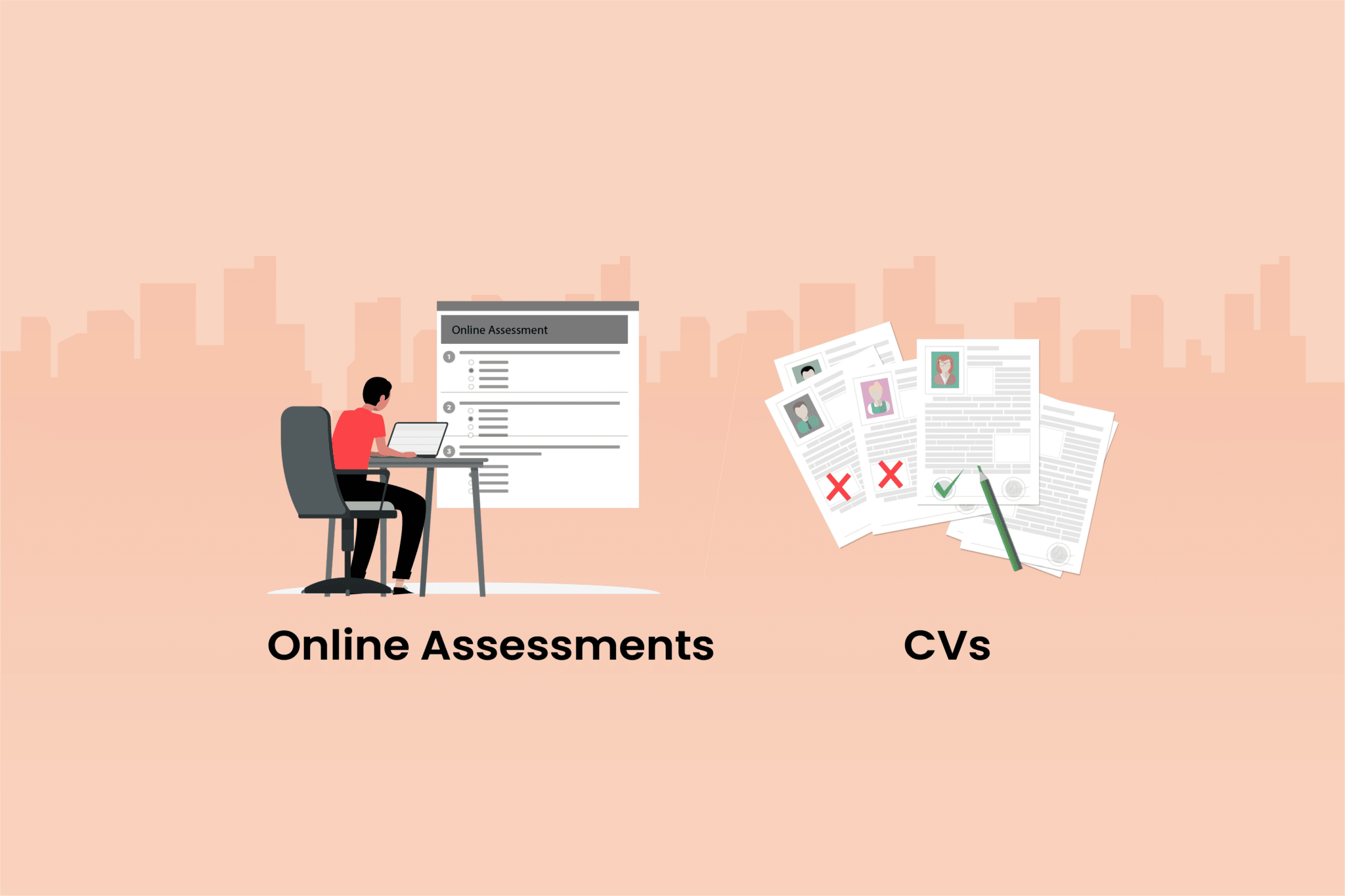In today’s data-driven world, the role of a Database Administrator (DBA) is more critical than ever before. As organizations strive to harness the power of big data and analytics, the need for skilled professionals who can effectively manage and optimize complex database systems has skyrocketed. The recruiting landscape for DBAs has witnessed a significant shift, with HR professionals and CXOs recognizing the strategic importance of this role in driving business success.
With the exponential growth of data and the increasing emphasis on data-driven decision-making, organizations are seeking DBAs who possess a unique blend of technical expertise, analytical acumen, and problem-solving skills. In this dynamic landscape, the ability to navigate diverse database technologies, ensure data security, and leverage advanced analytics tools has become paramount. As HR professionals and CXOs, understanding the evolving trends and key considerations in recruiting DBAs is crucial to building a robust and efficient database management team that can unlock the full potential of an organization’s data assets.
Here are the top 60 Database Administrator interview questions to ask job applicants:
15 general interview questions for the Database Administrator
- Can you explain the role and responsibilities of a Database Administrator?
- How do you ensure the security and integrity of a database?
- What steps do you take to optimize database performance?
- Describe your experience with different database management systems (DBMS) and their specific strengths and weaknesses.
- How do you handle database backups and disaster recovery planning?
- Can you explain the process of database schema design and normalization?
- Have you worked with large-scale database migrations? If so, what challenges did you encounter and how did you overcome them?
- How do you handle database performance issues, such as slow queries or bottlenecks?
- Can you discuss your experience with database monitoring and troubleshooting tools?
- Have you implemented database security measures, such as encryption and access controls? If yes, how?
- How do you handle database scalability and capacity planning?
- Can you describe your experience with database replication and high-availability solutions?
- Have you worked on database performance tuning projects? If so, can you provide an example of a performance improvement you achieved?
- How do you stay updated with the latest trends and advancements in database technologies?
- Can you discuss a challenging database-related problem you encountered in the past and how you resolved it?
5 sample answers to general interview questions for the Database Administrator
- Can you explain the role and responsibilities of a Database Administrator?
Look for: Understanding of the core responsibilities, such as database management, performance optimization, security, and data integrity.
Example answer: “As a Database Administrator, my primary responsibility is to ensure the efficient operation of database systems. This includes tasks such as database installation, configuration, and ongoing maintenance. I am responsible for monitoring performance, identifying and resolving bottlenecks, optimizing queries, and ensuring data integrity and security. Additionally, I implement backup and recovery procedures, handle database migrations, and collaborate with other teams to meet business requirements.”
- How do you handle database backups and disaster recovery planning?
Look for: Knowledge of backup strategies, scheduling, and recovery procedures.
Example answer: “To handle database backups, I follow a regular schedule and leverage automated backup tools to ensure data is protected. I perform full backups periodically and supplement them with incremental or differential backups to minimize data loss. As for disaster recovery planning, I develop comprehensive strategies that involve offsite backups, standby servers, and replication. I conduct periodic tests and simulations to validate the effectiveness of the recovery plan.”
- How do you ensure the security and integrity of a database?
Look for: Awareness of security measures, access controls, and vulnerability management.
Example answer: “To ensure database security and integrity, I employ multiple layers of protection. This includes implementing robust access controls, such as role-based permissions and strong authentication mechanisms. I regularly update and patch the database systems to address any vulnerabilities. Additionally, I monitor for suspicious activities and unauthorized access attempts, perform regular security audits, and implement encryption techniques to protect sensitive data both at rest and in transit.”
- How do you handle database performance issues, such as slow queries or bottlenecks?
Look for: Familiarity with performance monitoring, query optimization techniques, and troubleshooting skills.
Example answer: “When dealing with performance issues, I start by identifying the root cause through performance monitoring tools. I analyze query execution plans and optimize poorly performing queries by using appropriate indexes, rewriting SQL statements, or implementing caching mechanisms. I also ensure that database statistics are up to date. If necessary, I fine-tune database configuration parameters or consider hardware upgrades. I continuously monitor and analyze system performance to proactively address potential bottlenecks.”
- Can you describe your experience with different database management systems (DBMS) and their specific strengths and weaknesses?
Look for: Exposure to various DBMS platforms and an understanding of their unique features and limitations.
Example answer: “I have experience working with multiple DBMS platforms, including Oracle, Microsoft SQL Server, and MySQL. Oracle offers robust scalability and advanced features for enterprise-level applications, while SQL Server provides excellent integration with other Microsoft technologies. MySQL, on the other hand, is known for its simplicity and flexibility. I understand the strengths and weaknesses of each system and can leverage their specific features to optimize performance, scalability, and reliability based on the specific requirements of the organization.”
15 behavioral interview questions for a Database Administrator
- Tell me about a time when you had to troubleshoot a complex database issue. How did you approach the problem, and what was the outcome?
- Can you describe a situation where you had to balance conflicting priorities while managing multiple database projects simultaneously? How did you prioritize tasks and ensure successful outcomes?
- Describe a time when you identified a security vulnerability in a database system. How did you address the issue and prevent it from happening in the future?
- Can you share an example of a time when you had to work collaboratively with other teams or departments to implement a database-related project or resolve an issue? How did you ensure effective communication and successful outcomes?
- Tell me about a time when you had to handle a major database failure or outage. How did you respond to the situation, and what steps did you take to recover the database and minimize downtime?
- Describe a time when you had to optimize a database’s performance. What strategies did you employ, and what were the results?
- Can you share an example of a time when you had to explain complex database concepts or technical information to non-technical stakeholders or clients? How did you ensure clear communication and understanding?
- Tell me about a situation where you had to work under pressure to meet a tight deadline for a database-related project. How did you manage your time and resources to deliver the project successfully?
- Describe a time when you implemented a database backup and recovery strategy. How did you ensure data integrity and successful recovery in the event of a disaster?
- Can you share an example of a time when you had to deal with a difficult stakeholder or user request related to database management? How did you handle the situation and ensure customer satisfaction?
- Tell me about a time when you had to implement database changes or upgrades while minimizing disruption to ongoing operations. How did you plan and execute the process?
- Describe a situation where you had to troubleshoot and resolve a performance issue caused by a poorly written or inefficient query. How did you identify the problem, and what steps did you take to optimize the query?
- Can you share an example of a time when you had to migrate a large database from one system to another? How did you plan and execute the migration while ensuring data accuracy and minimal downtime?
- Tell me about a time when you had to train or mentor a team member or colleague on database management principles or specific database technologies. How did you approach the mentoring process, and what were the results?
- Describe a situation where you had to balance the need for database security with the demand for convenient and efficient access to data. How did you strike the right balance, and what measures did you implement?
5 sample answers to behavioral interview questions for the Database Administrator
- Tell me about a time when you had to troubleshoot a complex database issue. How did you approach the problem, and what was the outcome?
Look for: Problem-solving skills, analytical thinking, and the ability to handle complex database issues effectively.
Example answer: “In my previous role, we encountered a performance issue where a critical database query was running significantly slower than expected, impacting the overall system performance. To troubleshoot the issue, I analyzed the query execution plan, identified the bottleneck, and optimized the query by rewriting it and creating appropriate indexes. I also collaborated with the development team to refactor the application code that generated the query. As a result, the query performance improved by 70%, and the system response time returned to acceptable levels.”
- Can you describe a situation where you had to balance conflicting priorities while managing multiple database projects simultaneously? How did you prioritize tasks and ensure successful outcomes?
Look for: Ability to multitask, prioritize effectively, and deliver successful outcomes in a fast-paced environment.
Example answer: “In my previous role, I was responsible for managing multiple concurrent database projects with tight deadlines. To balance conflicting priorities, I evaluated each project’s importance, impact on business objectives, and urgency. I created a project roadmap, set clear priorities, and communicated them with stakeholders. I also collaborated with team members to delegate tasks and ensured regular communication to track progress and resolve any roadblocks. By effectively managing priorities and fostering teamwork, we successfully delivered all projects within the specified timeframes.”
- Describe a time when you identified a security vulnerability in a database system. How did you address the issue and prevent it from happening in the future?
Look for: Knowledge of database security, a proactive approach to identifying vulnerabilities, and the ability to implement preventive measures.
Example answer: “During a routine security audit, I discovered a vulnerability in our database system that could potentially allow unauthorized access to sensitive data. I immediately reported the issue to the relevant stakeholders and collaborated with the security team to address it. We implemented additional access controls, tightened user permissions, and enhanced encryption mechanisms. Furthermore, I conducted training sessions to educate users about best practices for data security. By taking these proactive measures, we mitigated the vulnerability and ensured stronger security measures were in place.”
- Can you share an example of a time when you had to work collaboratively with other teams or departments to implement a database-related project or resolve an issue? How did you ensure effective communication and successful outcomes?
Look for: Collaboration skills, communication abilities, and experience in cross-functional teamwork.
Example answer: “In a recent project, we needed to integrate a third-party application with our existing database system. I collaborated closely with the development team, the vendor’s technical team, and the business stakeholders to ensure a smooth implementation. I organized regular meetings to align requirements, set expectations, and establish clear communication channels. I facilitated discussions to address technical challenges and ensured everyone was on the same page throughout the project. By fostering effective collaboration and maintaining open lines of communication, we successfully implemented the integration, meeting the project goals and delivering value to the business.”
- Tell me about a time when you had to handle a major database failure or outage. How did you respond to the situation, and what steps did you take to recover the database and minimize downtime?
Look for: Ability to handle high-pressure situations, problem-solving skills, and experience in disaster recovery planning.
Example answer: “During a critical system failure, our database became inaccessible, leading to a significant disruption in operations. I immediately initiated the incident response plan, and assembling a cross-functional team to investigate and resolve the issue. We quickly identified the root cause as a hardware failure and initiated the necessary steps for recovery, such as restoring from backups and implementing failover mechanisms. While the system was down, I maintained transparent communication with stakeholders, provided regular updates, and set realistic expectations. Through our swift actions and effective collaboration, we were able to restore the database and minimize downtime to just four hours, ensuring minimal impact on business operations.”
15 personality interview questions for the Database Administrator
- How do you stay organized and manage your workload effectively as a Database Administrator?
- Describe a situation where you had to adapt to a sudden change or unexpected challenge in your work as a Database Administrator. How did you handle it?
- Can you share an example of a time when you demonstrated attention to detail and thoroughness in your work as a Database Administrator?
- How do you approach learning new database technologies or tools to stay updated in your field?
- Tell me about a time when you had to work independently on a complex database project. How did you stay motivated and focused throughout the project?
- How do you handle stress and pressure in your role as a Database Administrator? Can you provide an example?
- Describe a situation where you had to troubleshoot a database issue while working under time constraints. How did you manage the pressure and find a solution?
- Can you share an experience where you successfully communicated technical concepts or complex information to non-technical stakeholders or clients as a Database Administrator?
- How do you approach collaborating and building relationships with other IT teams or departments to achieve common goals?
- Describe a time when you had to make a difficult decision or take a calculated risk as a Database Administrator. How did you analyze the situation and reach a resolution?
- Can you share an example of a situation where you had to resolve a conflict or disagreement with a colleague or team member while working on a database-related project?
- How do you prioritize continuous improvement and learning in your role as a Database Administrator? Can you provide an example of how you have applied new knowledge or skills to enhance your work?
- Tell me about a time when you had to handle multiple competing deadlines or urgent requests as a Database Administrator. How did you manage your time and ensure timely delivery?
- Can you share an experience where you had to present or deliver a technical presentation related to database management? How did you prepare and engage the audience effectively?
- How do you maintain a positive and proactive attitude in your work as a Database Administrator, especially during challenging or demanding situations?
5 sample answers to personality interview questions for Database Administrator
- How do you stay organized and manage your workload effectively as a Database Administrator?
Look for: Organizational skills, the ability to prioritize tasks, and effective workload management strategies.
Example answer: “As a Database Administrator, I prioritize my workload by assessing the urgency and impact of each task. I create a detailed task list or use project management tools to track deadlines and progress. Additionally, I allocate dedicated time for routine tasks such as backups, maintenance, and performance monitoring to ensure they are consistently addressed. I also practice effective time management techniques, such as setting realistic deadlines, breaking down complex tasks into smaller manageable steps, and maintaining clear communication with stakeholders regarding project timelines.”
- How do you approach learning new database technologies or tools to stay updated in your field?
Look for: Learning mindset, adaptability, and a proactive approach to staying updated with industry trends.
Example answer: “As a Database Administrator, I understand the importance of staying updated with emerging technologies. I actively engage in self-learning through online resources, industry forums, and professional networks. I also attend webinars, workshops, and conferences to expand my knowledge. Additionally, I participate in relevant certification programs to validate my skills. For instance, I recently completed a course on cloud-based database solutions to enhance my understanding of this evolving area. By embracing a continuous learning mindset, I can stay ahead of industry advancements and implement best practices in my role.”
- How do you handle stress and pressure in your role as a Database Administrator? Can you provide an example?
Look for: Ability to handle pressure, resilience, and effective stress management techniques.
Example answer: “In my role as a Database Administrator, I often encounter situations that require working under tight deadlines or dealing with critical issues. To handle stress, I prioritize tasks based on their urgency and impact, breaking them down into manageable steps. I practice effective time management techniques to ensure I allocate sufficient time for each task. Additionally, I maintain open lines of communication with stakeholders, keeping them informed about progress and managing expectations. One example of handling stress was during a major database outage, where I remained calm, coordinated efforts with the team, and followed established incident response protocols to resolve the issue promptly.”
- Can you share an experience where you had to collaborate and build relationships with other IT teams or departments to achieve common goals?
Look for: Collaboration skills, teamwork abilities, and relationship-building capabilities.
Example answer: “In a previous project, we were implementing a new software system that required integrating with various databases across different departments. I proactively reached out to the IT teams and department heads involved, scheduling regular meetings to align objectives, identify potential challenges, and establish clear communication channels. I actively listened to their concerns and perspectives, seeking opportunities for synergy and collaboration. By fostering strong relationships and open lines of communication, we successfully implemented the system, ensuring seamless integration and achieving the project’s goals.”
- How do you maintain a positive and proactive attitude in your work as a Database Administrator, especially during challenging or demanding situations?
Look for: Positive attitude, proactive approach, and ability to maintain composure in challenging situations.
Example answer: “Maintaining a positive and proactive attitude is crucial in my role as a Database Administrator. During challenging situations, I focus on the solution rather than dwelling on the problem. I remain calm, assess the situation objectively, and collaborate with the team to develop an action plan. I believe in proactive communication, keeping stakeholders informed about progress, challenges, and potential solutions. I also actively seek opportunities for process improvements and efficiency gains. By maintaining a positive mindset and proactive approach, I can effectively navigate challenging situations and contribute to a supportive and productive work environment.”
When should you use skill assessments in your hiring process for Database Administrator?
Skill assessments should be used in the hiring process for Database Administrators to ensure that candidates possess the necessary technical expertise and practical skills required for the role. Assessments are crucial because they provide objective and measurable insights into a candidate’s abilities, helping to validate their claims and qualifications.
By incorporating skill assessments, employers can gain a better understanding of a candidate’s proficiency in areas such as database management, query optimization, database security, disaster recovery, and troubleshooting. Assessments help identify candidates who can effectively handle real-world scenarios, adapt to new technologies, and contribute to the success of database operations.
There are various assessments that can be used to evaluate the skills of Database Administrators. These may include technical tests or coding challenges focused on SQL proficiency, database design, normalization concepts, or query optimization. Practical assessments involving scenarios or simulated tasks can also be used to gauge a candidate’s problem-solving abilities, decision-making skills, and ability to troubleshoot database issues. Additionally, certifications from reputable organizations can serve as an assessment of a candidate’s knowledge and expertise in specific database technologies or platforms.
In summary, skill assessments are important in the hiring process for Database Administrators as they provide valuable insights into a candidate’s technical capabilities, enabling employers to make informed decisions and select candidates who are best suited for the role. Assessments help ensure that the selected candidate can effectively manage databases, optimize performance, enhance security, and contribute to the overall efficiency of database operations.
Use our interview questions and skill tests to hire a talented Database Administrator
Unlock the potential of your hiring process with Testlify’s comprehensive skill assessments and interview questions specifically designed for Database Administrator.
Our extensive test library offers a wide range of assessments, including cognitive function, personality, situational judgment, programming, and more. By leveraging these assessments, you can objectively evaluate candidates’ abilities, ensuring you shortlist the most talented individuals efficiently.
To further enhance your hiring process, we invite you to book a free 30-minute live demo. Our expert team will guide you through the platform, showcasing relevant skill tests tailored to your hiring needs. With our support, you can streamline candidate selection, saving valuable time and resources.
Ready to find the perfect fit for your Database Administrator role? Testlify provides the tools you need to make informed hiring decisions. Explore our skill assessments and interview questions today to uncover exceptional talent for your team.







